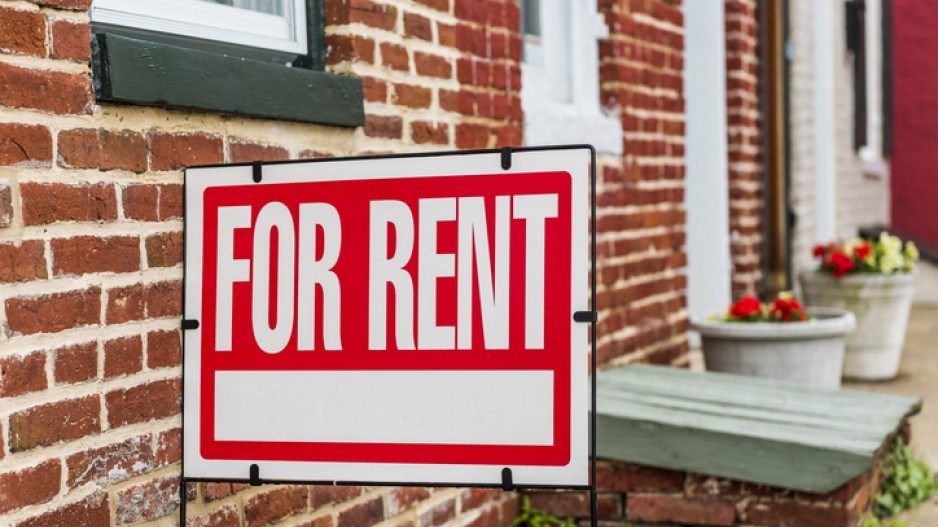One of the first comprehensive analysis of rental evictions in Canada has found that both Metro Vancouver and B.C. see a significantly higher eviction rate than their counterpart provinces or metropolitan areas across the country.
The report, conducted by UBC researchers Silas Xuereb, Andrea Craig and Craig Jones through the Housing Research Collaborative, uncovered the major gap between rental eviction rates between B.C. and the rest of Canada after delving through data from the 2018 Canadian Housing Survey (surveying a total of more than 65,000 Canadians).
The report asked respondents if their last move in residences (within a maximum of five years) came in the form of an eviction. According to researchers, the goal was to compare how different demographic groups differed in being evicted, but the most salient data may have come from the differences between different locations.
For instance, the five-year eviction rate for B.C. in the report reached 10.6% - almost double that of the next highest province (Prince Edward Island, at 6.8%) and almost three times higher than the rate in the provinces/regions with the lowest eviction rates (Manitoba and Nunavut, 3.7%).
Metro Vancouver, meanwhile, also significantly outpaced other major Canadian metro areas for the dubious honour, with a five-year eviction rate of 10.5% - again almost or more than doubling other major Canadian CMAs like Toronto (5.8%) and Montreal (4.2%).
“After controlling for other household characteristics, living in British Columbia was associated with 1.7 times higher odds of being evicted within the previous five years compared to Ontario,” said Xuereb, who authored the report, in the analysis. “... British Columbia had the highest growth in real rents during this period, although there is otherwise no strong relation between growth in real rents and evictions.”
Jones, from whom the idea for the research project originated, is the research coordinator for UBC’s Balanced Supply of Housing Research Cluster and co-supervised the new report. He said the one question that came up constantly when he looked at what studies can be done with the Canadian Housing Survey data was how little research existed on evictions in Canada.
Part of it was Jones’ own personal experiences in the Metro Vancouver rental market – the researcher was himself evicted twice over a five-year span - although he admitted he didn’t expect the data to reveal such a significant gap between B.C. and the rest of Canada.
“I did find this very surprising,” Jones said. “I did not expect Metro Vancouver and British Columbia to be so clearly different from the rest of Canada. Although, in saying that out loud, I actually wasn’t surprised that Montreal had a lower number overall, because Montreal has a long history of having renters in that market and a lot of protection for renters. But did I know Vancouver was going to stand out the way it did? No, I did not.”
The data revealed other phenomena when it came to evictions in Canada. For one, single males with children suffered the highest eviction rates by family composition (8.7%), followed by single females with children (7.6%) and couples with children (7.2%). Those without children did significantly better (3.9-6.8%).
The study also revealed gaps in evictions for members of certain ethnicities. Indigenous community members suffered by far the highest eviction rate (10%), higher than other ethnic groups (5.1-6.6%). Similar gaps can also be seen in the immigration statuses of the renters, with refugees (9.4%) much more likely to be evicted than non-immigrants (6.9%), family-category immigrants (5.7%) and economic-category immigrants (3.4%).
Xuereb also wrote that evictions are more likely if the respondent’s shelter-cost-to-income-ratio is above 50% (or, in other words, a person spends more than half of their income towards paying rent). This group’s eviction rate was 8.8%, compared to a rate of just 6.1% if that ratio falls below 30%.
Researcher Andrea Craig, who is also an assistant professor at UBC-Okanagan, said there are some positives to gleam from the report. She noted that a look at the age demographics showed that just 2.7% of those aged 75 and above were evicted in the last five years from 2018 – which demonstrates that the elderly – among the most vulnerable of the renters population – are well protected.
She added that the research does not go into why evictions rates are higher in Vancouver and B.C. in general, noting that the paper simply provides of baseline of fundamental data upon which further study and policy examination can be done by decision-makers.
“From a policy perspective, I guess this leads to a question of why the difference exists,” Craig said, adding the key will also be for statisticians to continue to tabulate similar numbers moving forward to keep track.
“Is it a difference in tenancy rules? Is it because of differences in the markets? It’s accurate to know the numbers for people to ask why and the importance of continuing to collect this data.”



